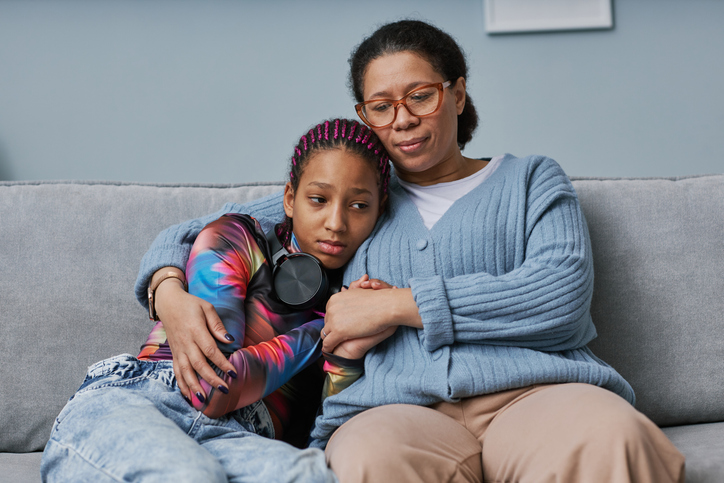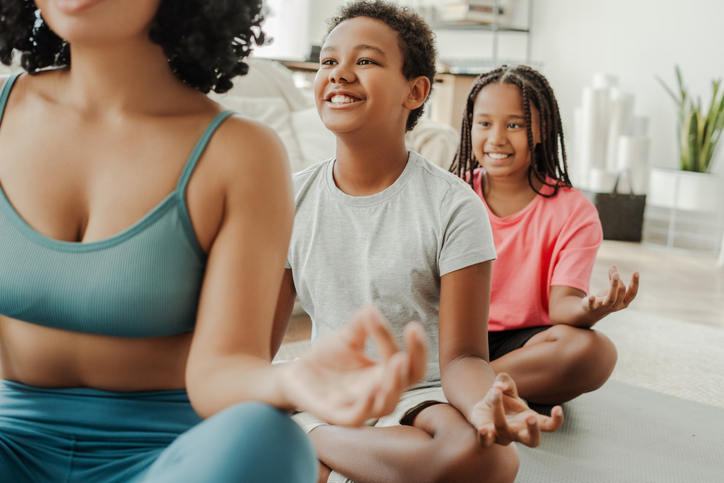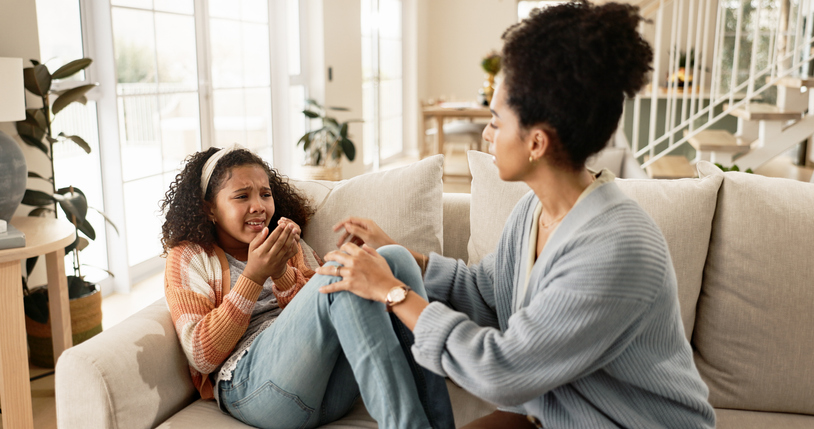5 Ways To Talk To Your Children About Post-Election Anxiety
5 Ways To Help Your Children Cope With Post-Election Anxiety - Page 5
Share the post
Share this link via
Or copy link
With former president and convicted felon Donald Trump returning to the White House for another term, many parents across the U.S. are grappling with uncertainty and concern about the nation’s future. This anxiety is spilling over to their children, experts warn.
Psychiatrists like Dr. Amy King note that as adults struggle with the pressure of a tight election, kids are reflecting their parents’ stress, with younger children being particularly vulnerable to the emotional impact.
Related Stories
“When they sense tension, and when they sense you are overwhelmed, and when they see you are frenetic or worried about things, they take that on,” King told KGW8 during an interview in November.
1. Maintain A Normal Routine In The Household

Source: SeventyFour / Getty
Love MadameNoire? Get more! Join the MadameNoire Newsletter
We care about your data. See our privacy policy.
With political tensions at an all-time high, doctors like Dr. Amy King stress the importance of maintaining a stable routine at home to help shield children from growing anxiety. Keeping consistent activities—such as playtime, bathtime, and bedtime rituals—can provide a sense of security and normalcy for young ones. Even simple family traditions like watching a movie together or sitting down for dinner can help buffer them from the stress of election-related worries. These routines create a calm, predictable environment that allows children to feel more anchored, despite the chaos around them.
Dr. King also advises that parents be open and honest when their children have questions about the political climate or why people seem upset. Answering their questions in a calm, age-appropriate way can help them process complex emotions without adding to their fears. A clear, reassuring conversation can go a long way in helping children feel heard and understood during turbulent times.
“The election brings up lots of big feelings for the adults in our lives,” King said while adding an example of what might be an effective way of answering kids’ questions about the unfortunate election outcome. “If you notice I get animated, or your dad or mom gets animated, just know that’s part of adults having big feelings.”
2. Model Healthy Behaviors

Source: Prostock-Studio / Getty
As noted by the Child Mind Insitute, constantly checking the news or scrolling through social media can heighten emotions and anxiety. Instead, show your kids how to balance staying informed with engaging in other activities. By demonstrating a healthy approach to media consumption, you teach them how to manage their own emotional responses in times of stress.
3. Exercise As A Family

Source: Mariia Vitkovska / Getty
Encouraging your children to participate in local community decisions can help them channel any discomfort or frustration into positive action. Whether it’s volunteering or learning more about local issues, being part of the decision-making process helps kids feel empowered and gives them a sense of control during uncertain times.
4. Encourage Empathy And Engagement

Source: Jacob Wackerhausen / Getty
Elections—especially contentious ones—offer a valuable opportunity to teach children about the democratic process and the importance of empathy. While the outcome of a new administration may not be clear, it’s important to remind kids that the path forward requires cooperation and understanding. This focus on civic engagement can help shift their perspective from fear to hope, reinforcing the idea that positive change is possible through collective action.
5. Monitor Your Kids’ Social Media

Source: Mariia Vitkovska / Getty
It’s important for parents to actively monitor their children’s social media use, especially during politically charged periods. Social media can amplify fear, misinformation, and negativity, so guide your children toward positive, fact-based content and help them navigate the emotional impact of online interactions. Encourage open conversations about what they see online and how it might make them feel.
RELATED CONTENT: 5 Methods To Cope With Election Day Panic
-

Meet Dominique Fils-Aimé, The Haitian-Canadian Star Redefining Jazz For A New Generation: ‘This is My Vision' [Exclusive]
-

Cooking With Purpose — How Brittney Williams Honors Her Caribbean Roots Through Food
-

Bucket Baddies With Big Energy — The 30 Hottest NBA Players In The Game Right Now
-

8 Famous Lesbian Women Who Were Married To Men






